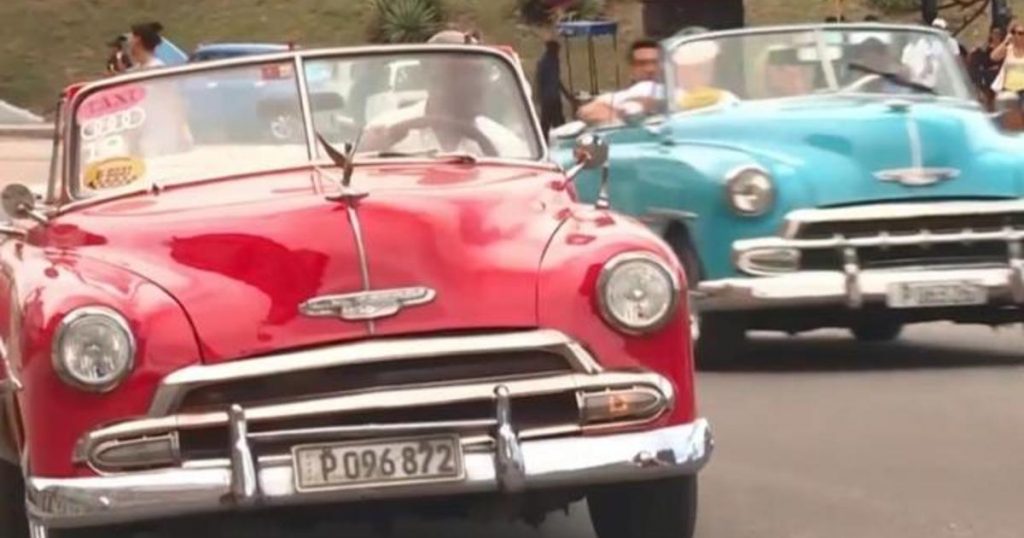People think thank-you notes are about as relevant as mix tapes, and you definitely shouldn’t send one after an interview.
Or you definitely should.
Chloe Gershonson, 25, got her first job after graduating because she sent a thank-you note — on paper, handwritten — after her initial interview, conducted remotely, with her prospective employer.
“They said they hadn’t seen someone do that in year and appreciated the extra effort,” said Gershonson, a marketing department media manager in Los Angeles. “I actually ended up getting hired on the spot when I went for the in-person [interview].”
Chloe Gershenson says a handwritten thank-you note helped her nab her first job offer out of college.
Source: Chloe Gershenson
Omari M. W. Allen, marketing manager at an L.A. area digital media company, said he likes receiving thank-you notes and they can give a candidate an edge if the hiring panel is choosing between two equally qualified people. But Allen also said they’re not a deal-breaker.
A commenter on LinkedIn, however, said they strike the wrong note.
Michael Neece, CEO at InterviewMastery.com, said thank-you notes are more relevant than ever. “Hiring managers expect it immediately after the interview,” Neece said. “Otherwise, they’ll conclude you are not interested.”
And most hiring managers (91%) in an Accountemps survey said they like to be thanked.
So, which is it? And what’s the best way to do it?
The answer is, it depends.
<![CDATA[
]]>
Brian Berdan, vice president of product management at an Ohio telecommunications firm, admits to this disconnect. In the many hiring decisions he’s made, a thank-you note was never a consideration. “I was more about their competence than their etiquette,” he said.
In fact, Berdan counsels his own kids who are entering the job market to thank interviewers, though it’s probably not going to make a difference unless the hiring manager is older.
“Then it’s more likely you’ll encourage someone who is looking for it,” he said. He said he himself would always write one. “I don’t want to leave anything to chance.”
After writing thank-you and follow-up notes, a client of Regina Duffey Moravek was able to keep the door open longer during an interview process.
More from Invest in You:
Magic strategy can save retirement for people in their 40s
Here’s what it takes to become a 401(k) millionaire at any age
These people in their 30s are doing a simple thing to get rich
“She went into greater detail about relevant work where the employer had overlooked it on the resume,” says Moravek, an HR professional with Bravely, a New York-based confidential HR and workplace coaching platform.
“The candidate was then given an informational interview — another shot with the employer,” Moravek said.
There are instances, however, where a thank-you note can actually hurt your chances of getting hired. Here are a few ways not to do a thank-you after the interview.
1. Canned emails get a thumbs-down
Use fresh, original phrases and tailor it to the interview, especially if you made a connection. In the time it takes to search online for examples of thank-you notes, you can jot down some phrases and recollections from the interview. If the recruiter mentioned an upcoming company initiative to use a new communication platform, look for a link to a news story about it.
2. Email is OK
A speedy email is best.
No need to dredge up stationery or trot out your best handwriting. So if you’re younger and can’t write in attractive cursive, no problem. And if you’re older but don’t have great handwriting, no worries, either.
To some employers, snail mail may come off as desperately old-school and worse, slow. Say four other candidates send an email the same day of the interview, and you mail your note. Hiring managers may already be making their decision while your note is in transit.
But if you feel a hand-written note is the best way to showcase your best self, go for it. Consider sending a quick email, though, to stay in the race while the U.S. Postal Service delivers.
3. Skip social media
Don’t use social media channels to communicate. “You don’t know how often that person is checking his or her channels, and the message can easily get lost,” said Vicki Salemi, a career expert at Monster.com in New York.
4. Don’t sound like a stalker
Avoid mentioning any personal details about the interviewer you might have come across in a Google search.
And if you’re wondering how formal or informal to be, it’s better to err on the side of formality. “I’ve never seen a candidate not get the job because he or she was too formal during the interview process,” Salemi said. Being too casual, on the other hand, can be a red flag.
5. Don’t be too enthusiastic
Make sure you don’t emphasize anything hinting of desperation or neediness. “For example, how long you have been searching for a job,” Salemi said.
You want to show some enthusiasm, but your excitement should be for the company and the role you’d be filling. “Be succinct, but also tie it back to the purpose,” Salemi said. “Add something specific you enjoyed learning about the position.”
Check out I Made $,1000 by Taking Pictures with This Easy Side Hustle via Grow with Acorns+CNBC.
Disclosure: NBCUniversal and Comcast Ventures are investors in Acorns.


